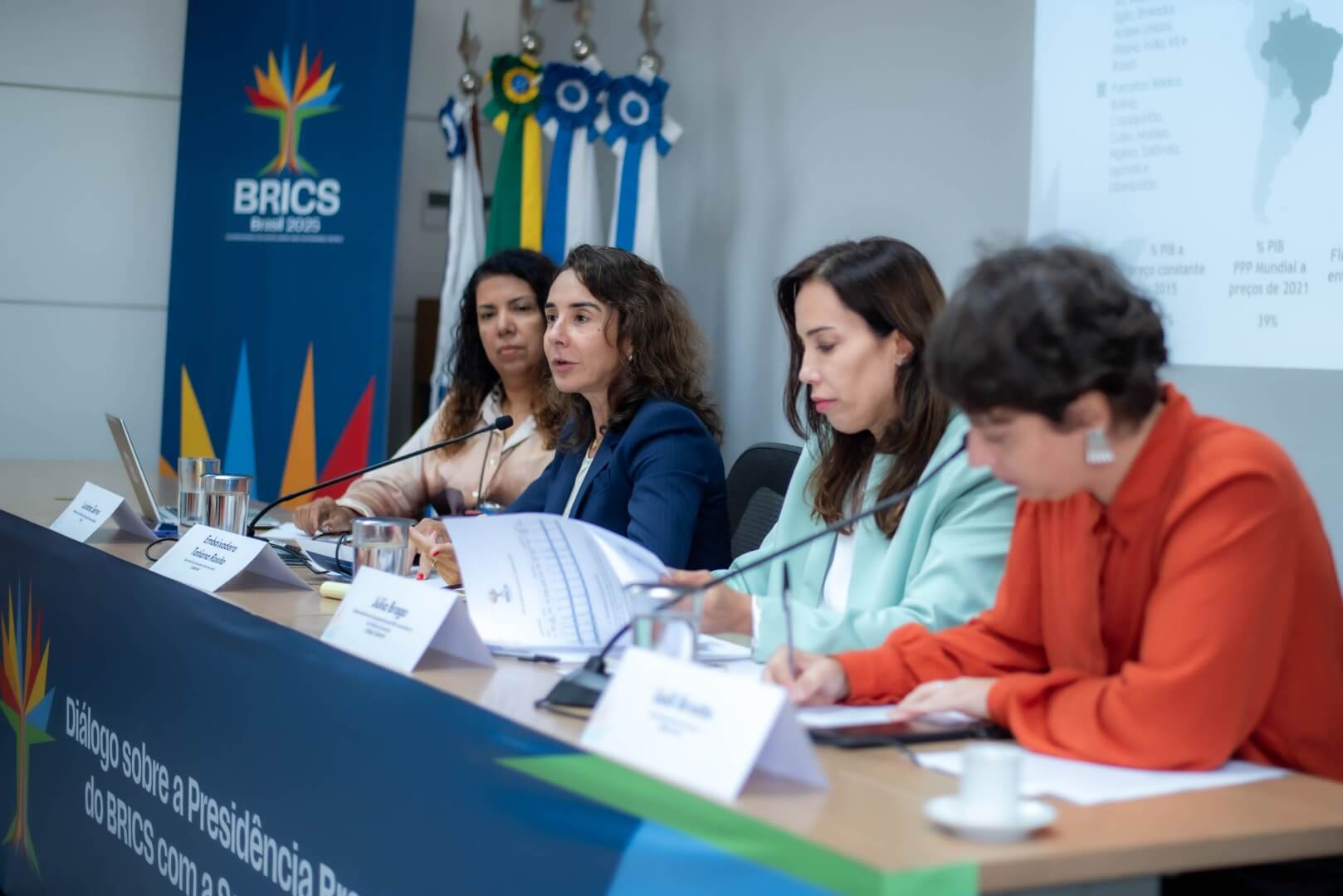BRICS economic and financial axis outlines priorities for civil society
Event organized by Brasil’s Ministry of Finance took place in the capital of Rio de Janeiro this week. Promoting financing and new tools to tackle climate change are among the priorities outlined.

From Brasil’s Ministry of Finance
The coordination of the BRICS economic and financial cooperation axis presented the group’s priorities to civil society representatives this week at the Palácio da Fazenda in the city of Rio de Janeiro. The event follows the 1st Meeting of BRICS Deputy Finance Ministers and Central Bank Representatives, held in Cape Town, South Africa, in February.
In a panel discussion featuring representatives from Brasil’s Ministry of Finance and partner institutions such as the Institute for Applied Economic Research (Instituto de Pesquisa Econômica Aplicada/IPEA) and Banco Central, participants presented six priority topics to civil society: facilitating trade and investment among BRICS countries, including means of payment; coordinating actions within international financial organizations; promoting financing and innovative mechanisms to address climate change, alongside COP30 discussions; advancing dialogue and cooperation on public-private partnerships, taxation, and customs issues; improving the regulation and oversight of artificial intelligence; and fostering debate with think tanks and civil society, including the BRICS Think Tank Finance Network.
During his presentation of the priority topics for the cooperation axis, the Secretary for International Affairs at Brasil’s Finance Ministry and coordinator of economic and financial work within the BRICS, Ambassador Tatiana Rosito, assessed the importance of the Brazilian presidency of the group in light of the incorporation of new members. She also highlighted the novelty of opening the dialogue with civil society on the subject. "This is an innovation we are bringing this year: having a specific area to expand participation and dialog," she said.
Uolli Briotto, coordinator of partnerships in economy and finance, highlighted that the dialog with civil society aims to "present the context and structure of Brasil's BRICS presidency, its priorities, and potential outcomes, with a focus on the financial track.
In addition to Rosito and Briotto, the Undersecretary for Macroeconomic Monitoring and Trade Policy, Julia Braga, also participated in the event. "The Brazilian agenda, which encourages economic integration, is crucial. This participation is vital. In this regard, the path for BRICS is still long, and there is plenty of room for further progress," she emphasized.
IPEA President Luciana Servo emphasized the Institute's role during Brasil's BRICS presidency, indicating that the agency will focus on issues related to climate financing and the evaluation of credit for sustainable development. Servo also highlighted the participation of women in Brasil's presidency: "Having a table composed entirely of women in the field of economics is something to be highlighted and celebrated. At IPEA, we coordinate two think tank groups: the BRICS Think Tanks Council and the BRICS Think Tank Network for Finance. Brasil has the unique feature of having the same institution leading both networks, which creates an opportunity for convergence among the tracks," she pointed out.
Sharing the coordination role with the Ministry of Finance, Brasil's Banco Central was represented at the event by the Deputy Head of the International Affairs Department, Bianca Kivel. She emphasized that one of the focuses of the monetary authority will be to share experiences among member countries on how central banks have analyzed and addressed climate risks.